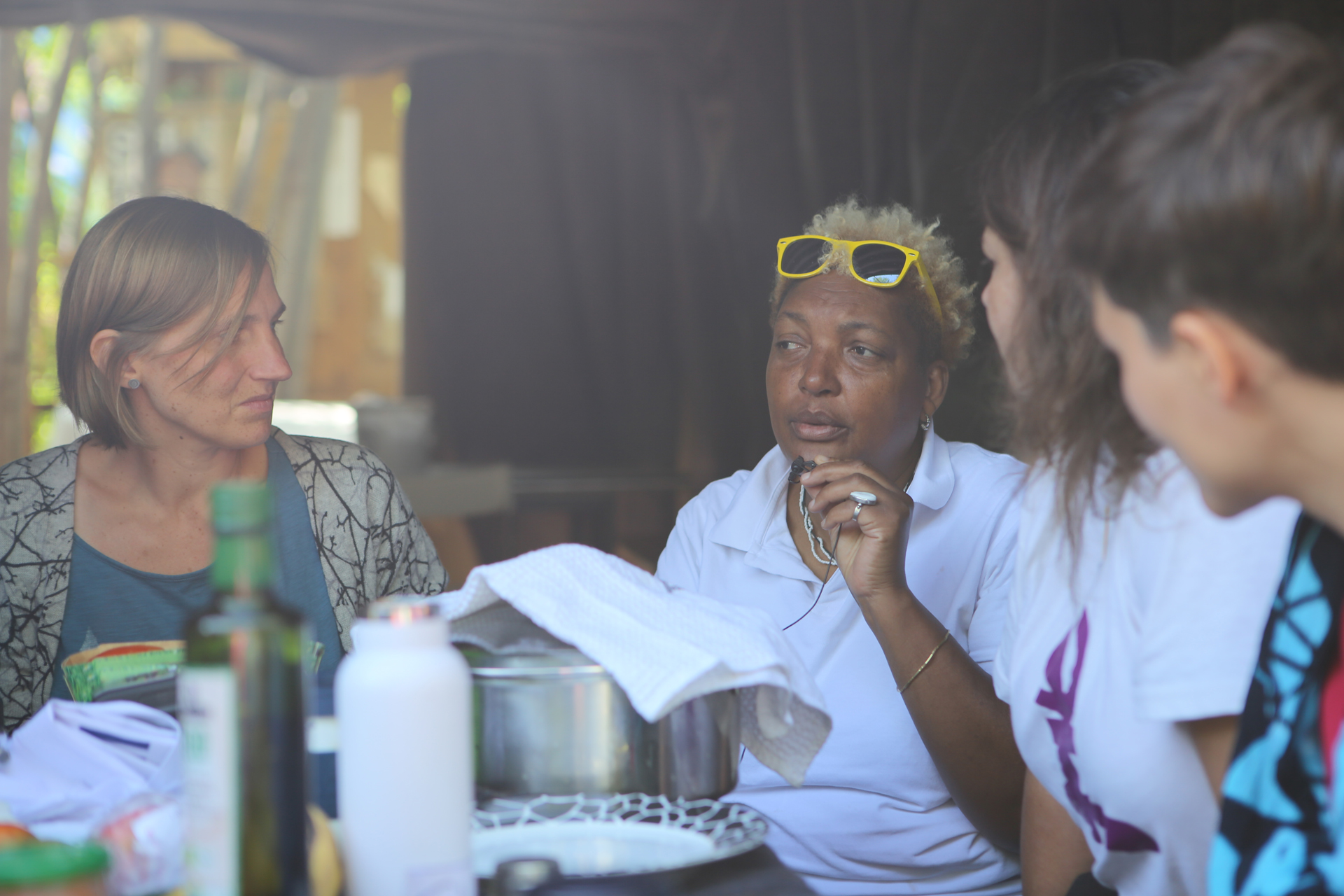QUALÉ, MANÉ?
2022, Poetry, Performance and Image. A workshop by Érica Zíngano & Barbara Marcel, as part of the Festival "Língua à solta" at Instituto Guimarães Rosa / Centro Cultural Brasil Angola, Luanda.
2022, Poetry, Performance and Image. A workshop by Érica Zíngano & Barbara Marcel, as part of the Festival "Língua à solta" at Instituto Guimarães Rosa / Centro Cultural Brasil Angola, Luanda.
The workshop "Qualé, mané?", proposed by Érica Zíngano and Barbara Marcel, is based on the encounter between different artistic languages, in the use of words and images, to think about issues that often remain veiled in everyday language, especially oral, in an almost "unconscious" way. The artists' proposal with this workshop is to create a collective space for speaking and listening, sharing experiences of the Portuguese language in Brazil and Angola, in order to reflect together with the participants on possible links of the colonial experience and its reminiscences. Based on the discussion of excerpts from the work of poet Patrícia Lino and filmmaker Miguel Gomes, both contemporary Portuguese artists who are thinking about this experience from the colonizer's point of view, we intend to create texts/images that make us think about places of force, counter-narratives to be imagined, in an open conversation about the present time, full of pasts and futures.
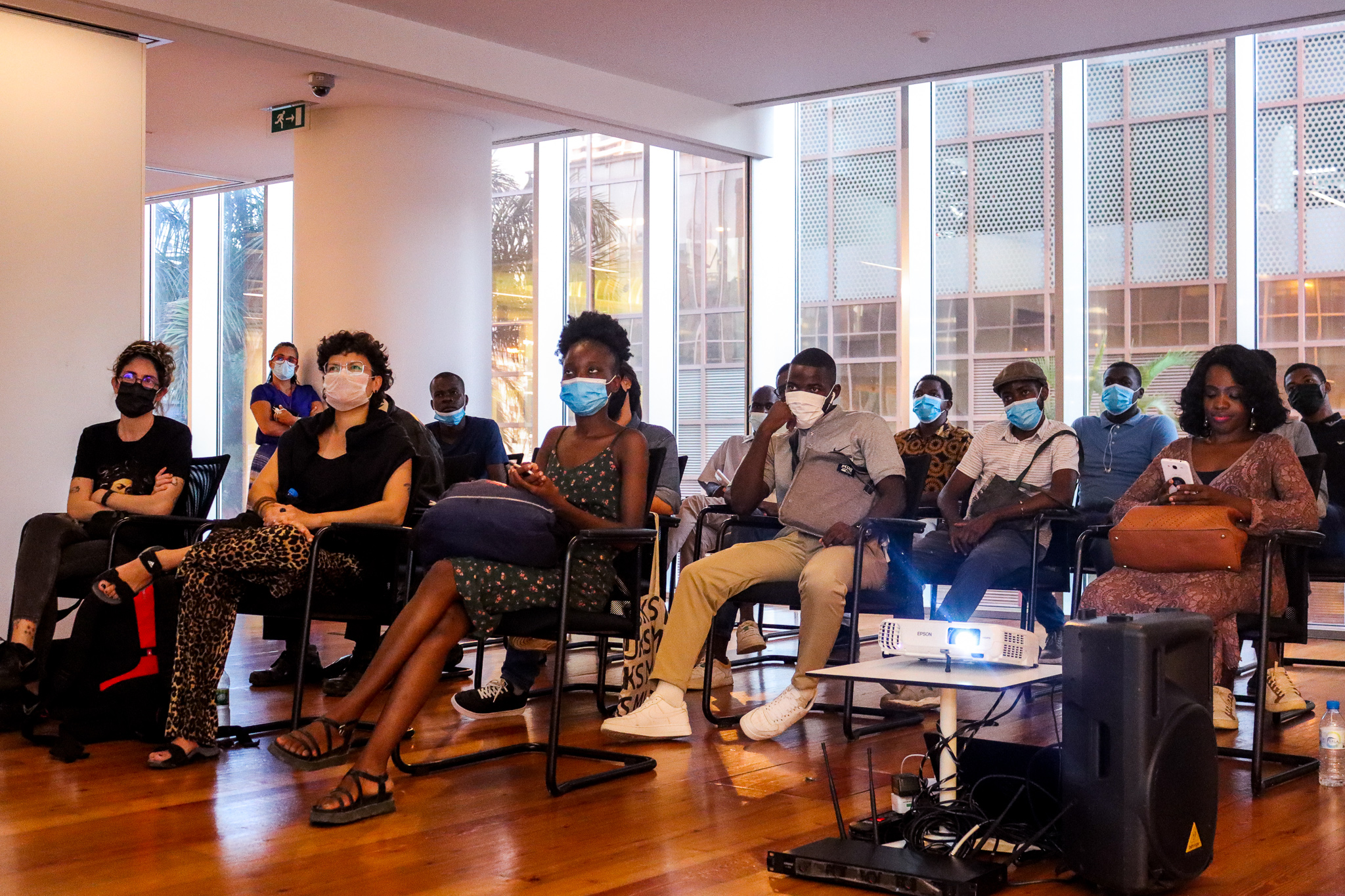
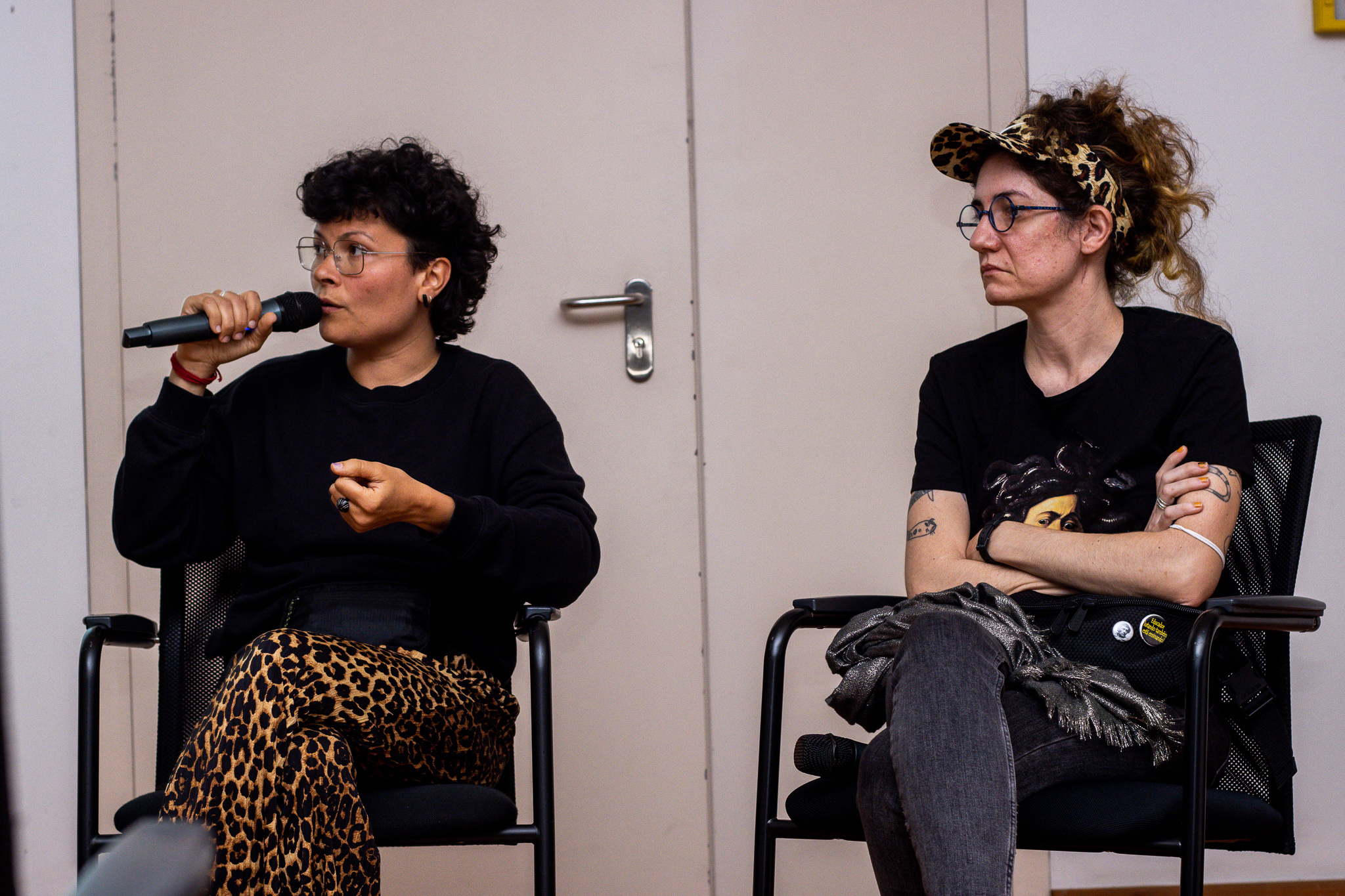
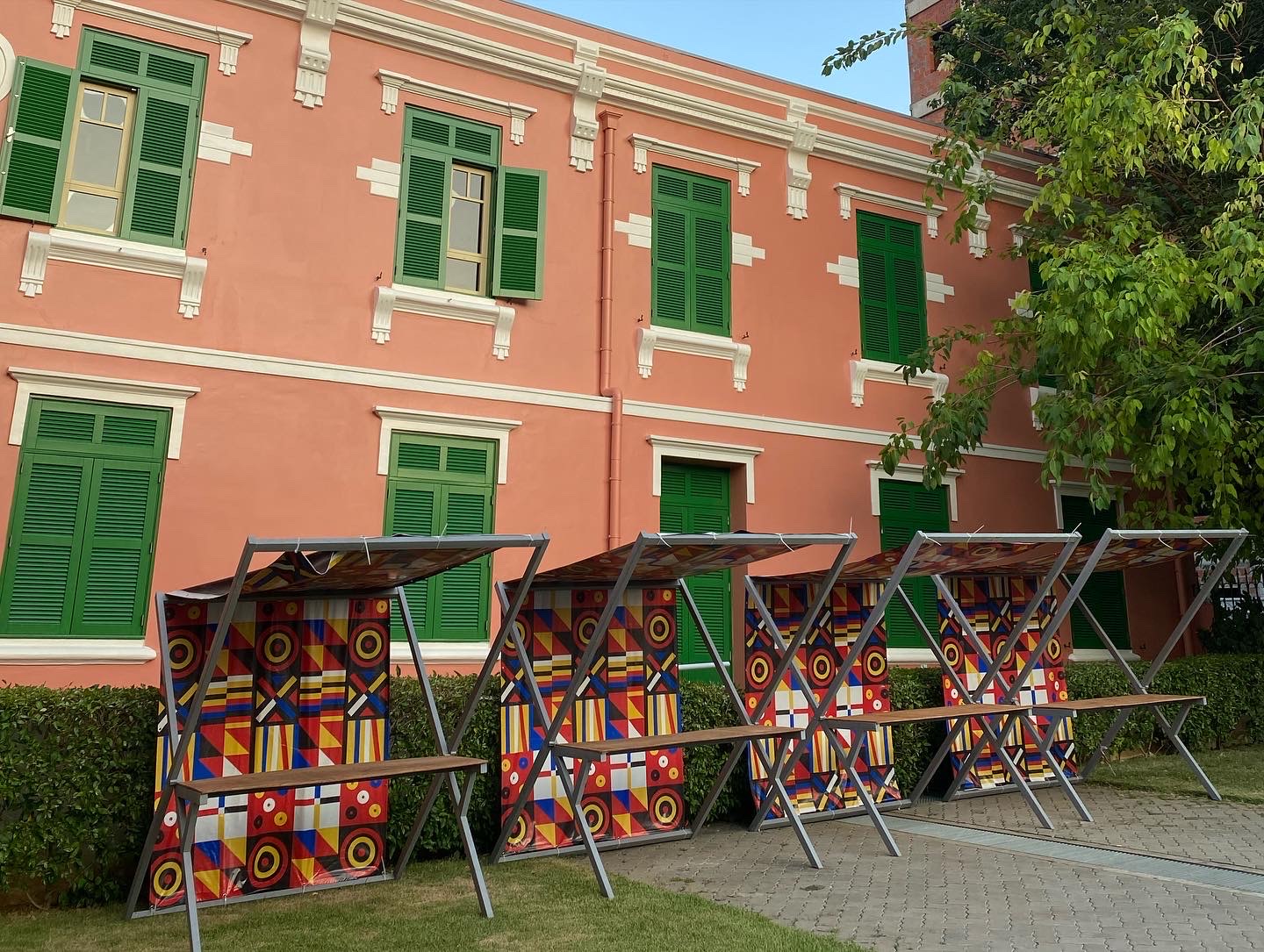
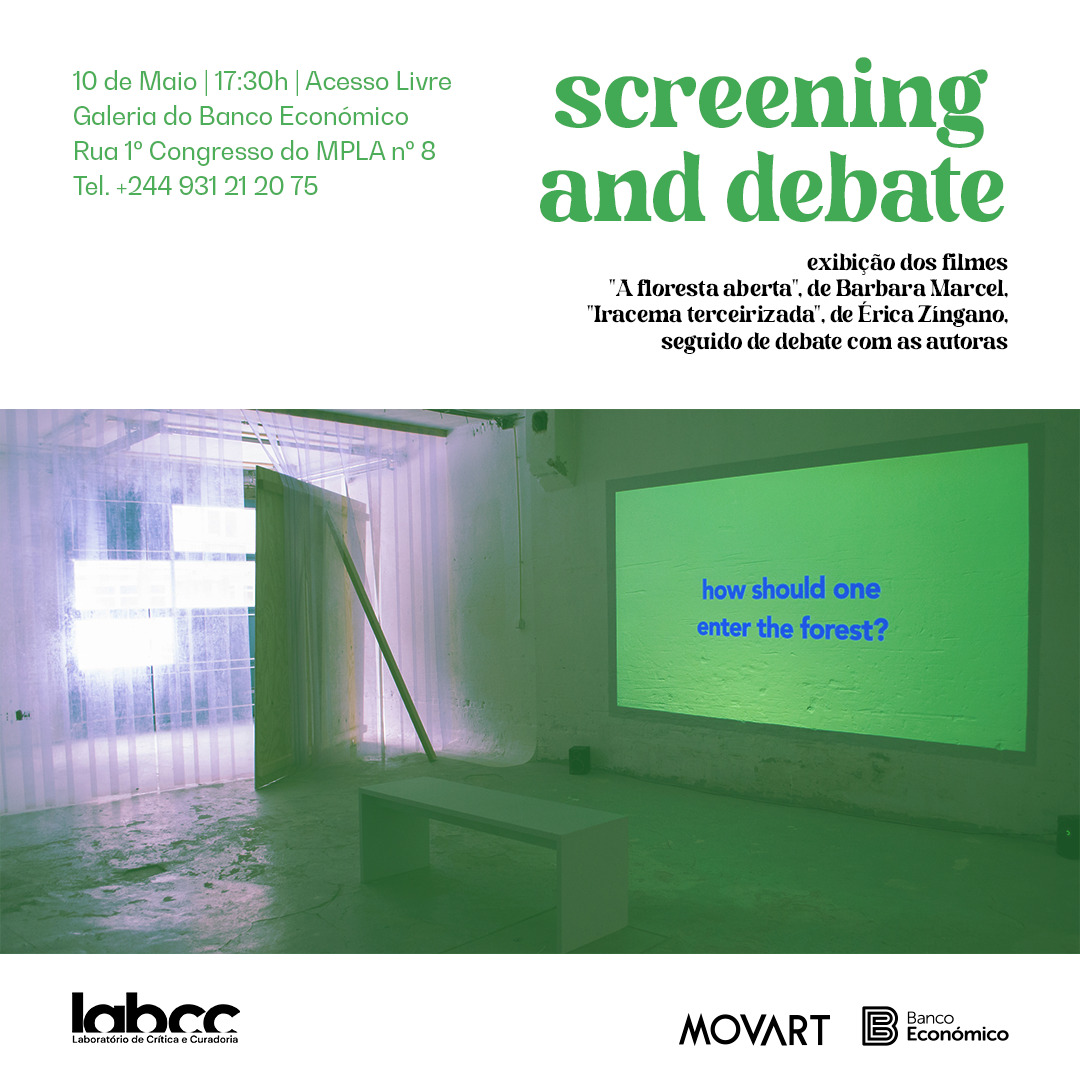
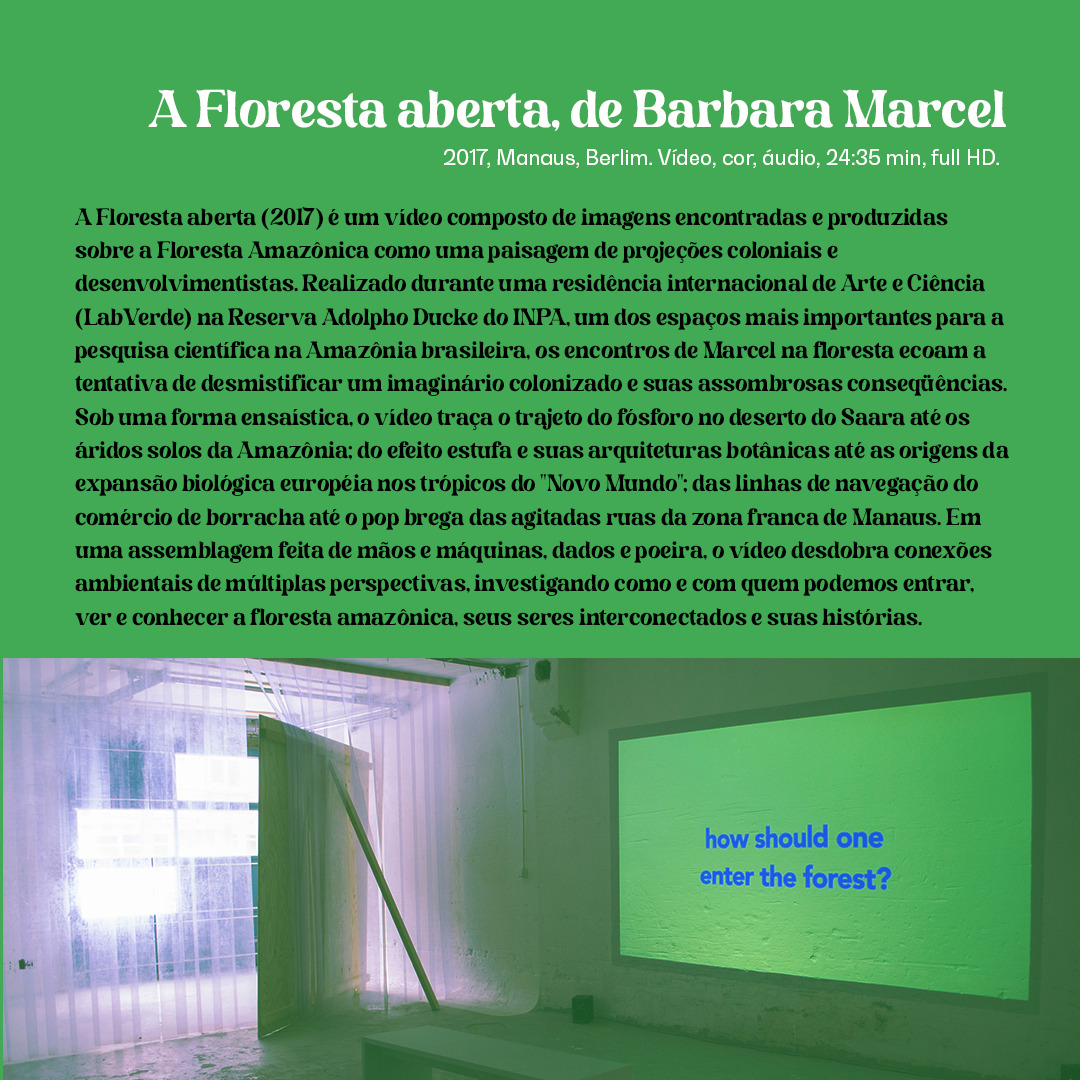
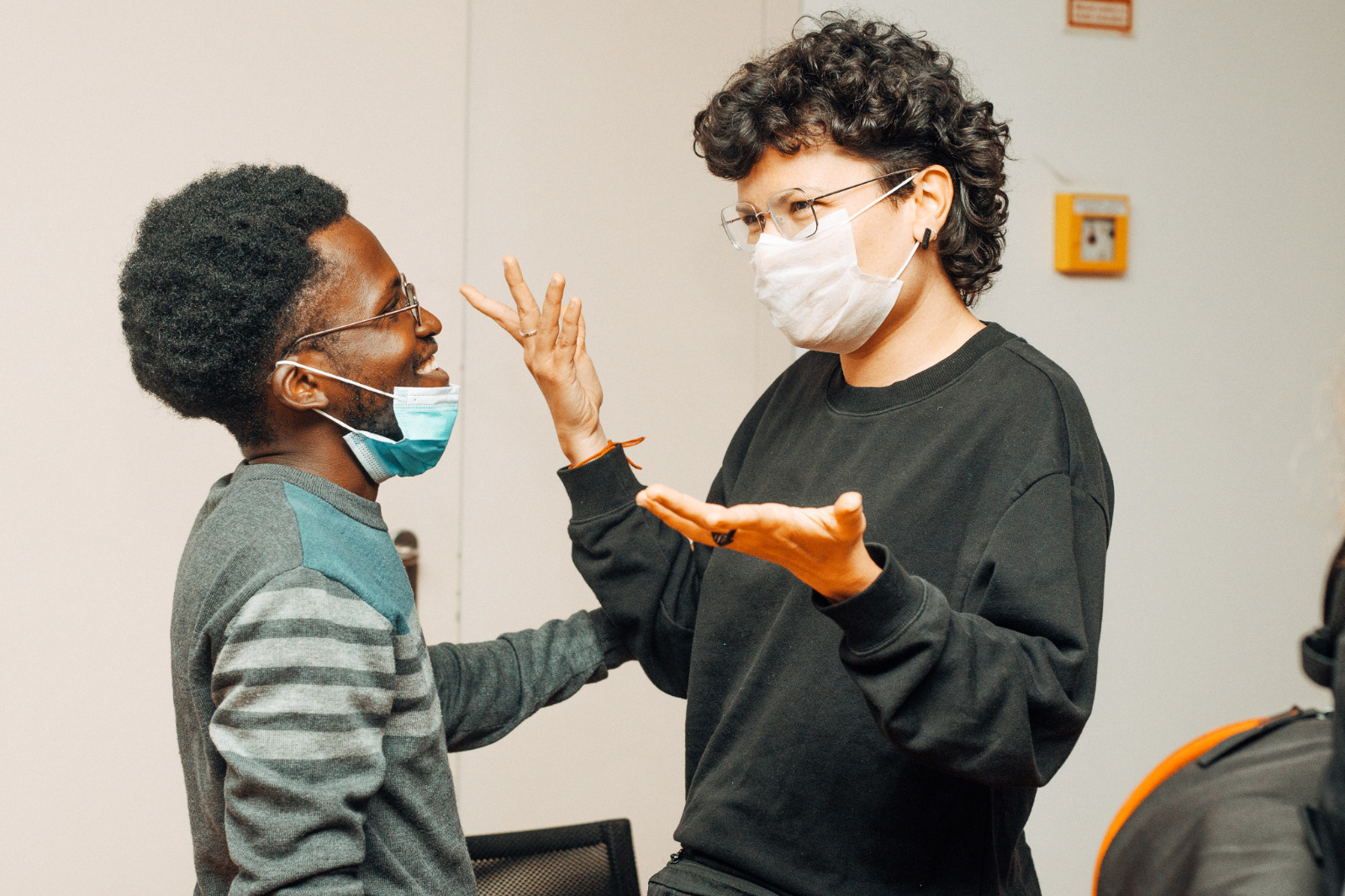
THIRD CINEMA
2021-22, Workshop in Congo-Kinshasa as part of the YANGO! Biennial 2021-2022.
2021-22, Workshop in Congo-Kinshasa as part of the YANGO! Biennial 2021-2022.
In this artistic project, I propose a contemporary revision of the film "Der Leone Have Sept Cabeças", by the Brazilian cinema novo filmmaker Glauber Rocha. As part of my of my participation in the Yango! Biennial in Kinshasa. The first stage of the project proposes the screening of the film made in 1970 in Congo-Brazzaville (now the Republic of Congo), in a public space in Kinshasa. The proposal is that both the projection and reception of Glauber's film be documented in the form of a video. The main point is to document how Glauber's film reaches the local public in Kinshasa today, and from there, to raise the following questions: What is the militant, anti-imperialist image today Is it possible to think of a tricontinental Latin American film alliance in 2021?
The second phase of the project proposes a rewriting of the script of the film in collaboration with locals in Kinshasa in a workshop with a local group of art students. The project starts from the idea that cinema is not only a physical space or a technical device, but a social space of projections, identifications, debate and creation of possible common worlds.
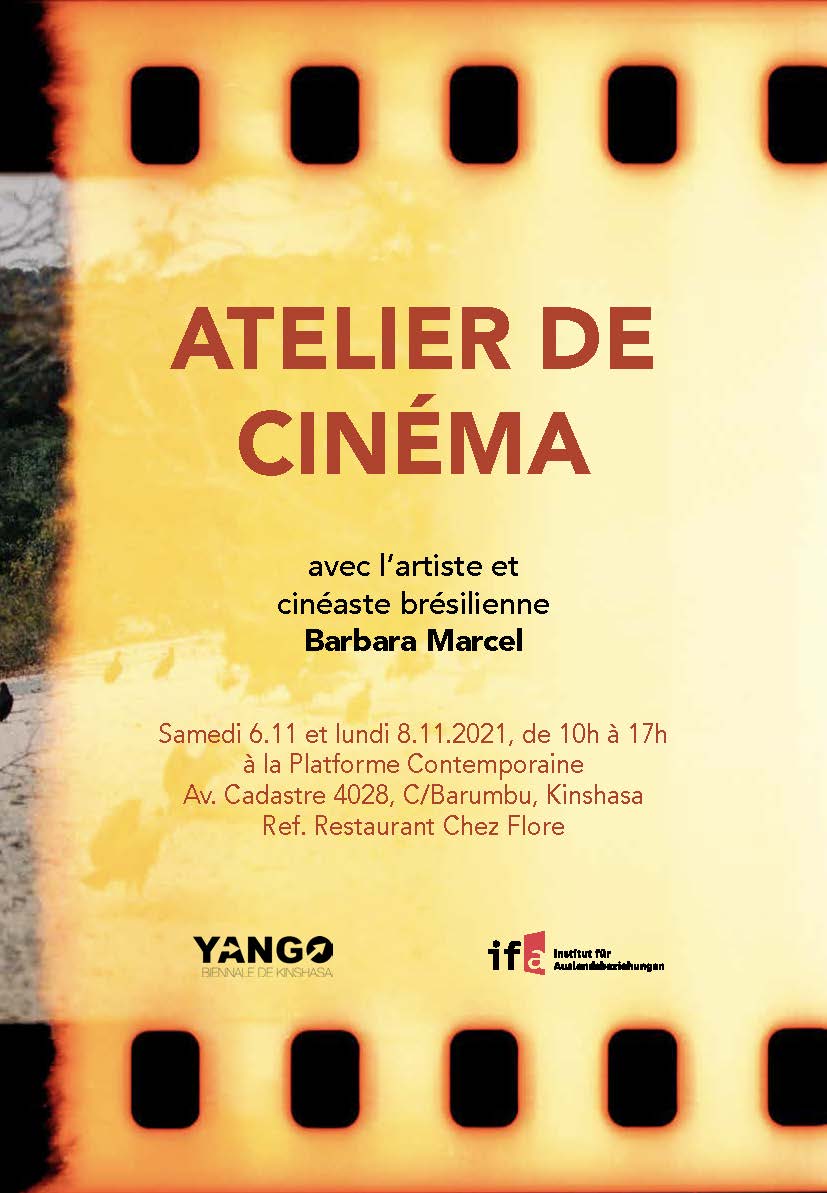
12 STEPS AND A HOLE IN THE VALLEY
2018, Clausthal-Zellerfeld, Harz. Walkshop in collaboration with Andreas Döpke.
2018, Clausthal-Zellerfeld, Harz. Walkshop in collaboration with Andreas Döpke.
We don’t need to see anything out of the ordinary, we already see so much. — Robert Walser, “A Little Walk”
What can you do with a hole in the valley? Where can you ramble when the earth no longer holds? Do the landscapes of non-cities and their seductive call to solitude remain compelling in times of urban disintegration? How can city-dwellers avoid the risks of escapism while attending to the real challenges of the rural-urban metabolic rift? Is there room to conceive of and create responsible and common futures that overcome the false dichotomies of nature-culture and rural-urban? What might be learned and unlearned in the augmented topographies of such ruined landscapes? How to wander over and under such unsteady ground?
This one-day walkshop, commissioned by the University of Hildesheim, is created by the artist Barbara Marcel, in collaboration with the geographer Andreas Döpke. It aims to bring together students of various disciplines, such as cultural studies, philosophy, geography and performing arts, in the historic, cultural landscape of the western Harz. Through a combination of collective and individual walking experiments, the world heritage region will be set up as a temporary and dynamic station for the collaborative imagining of past and future landscapes.
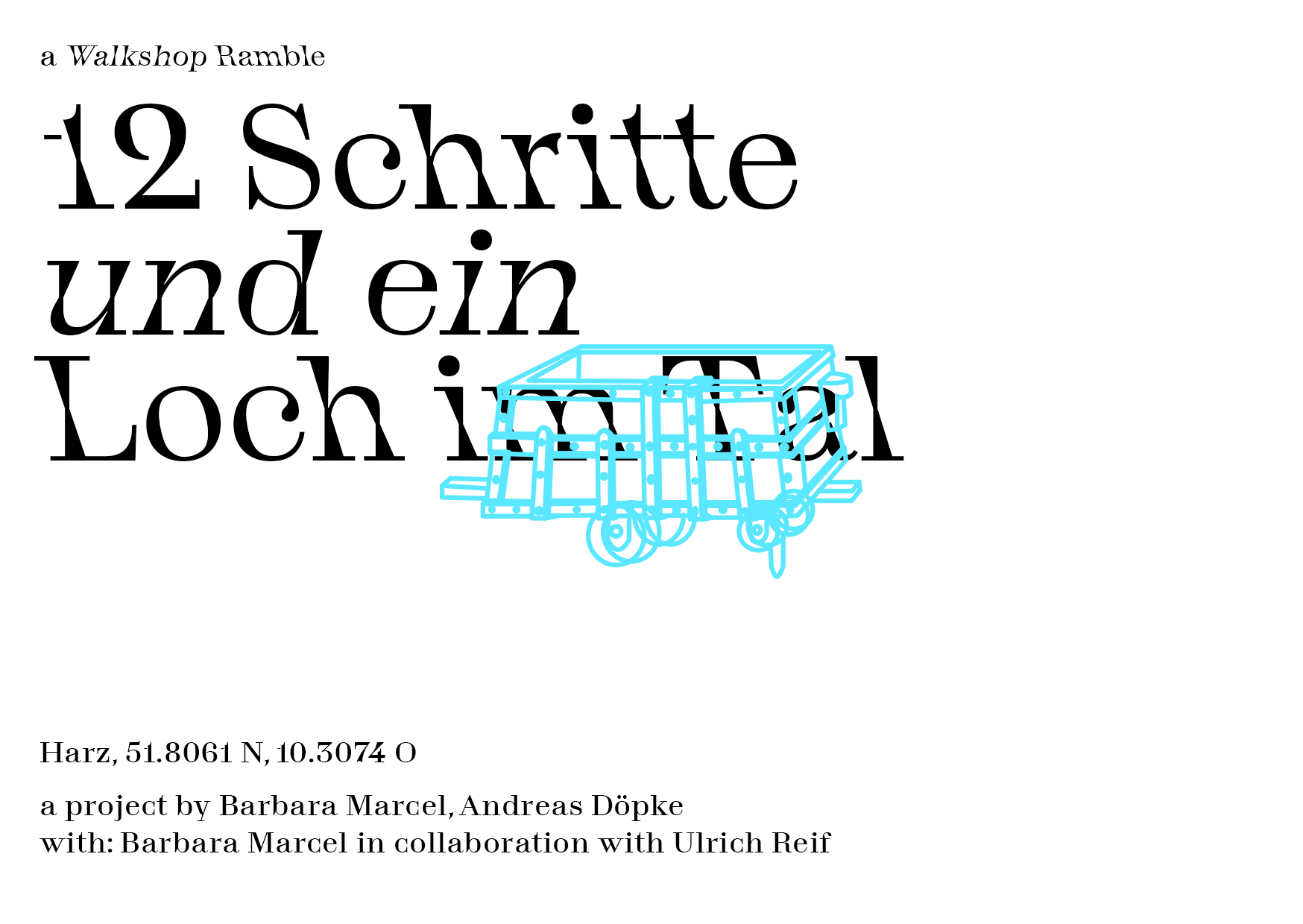


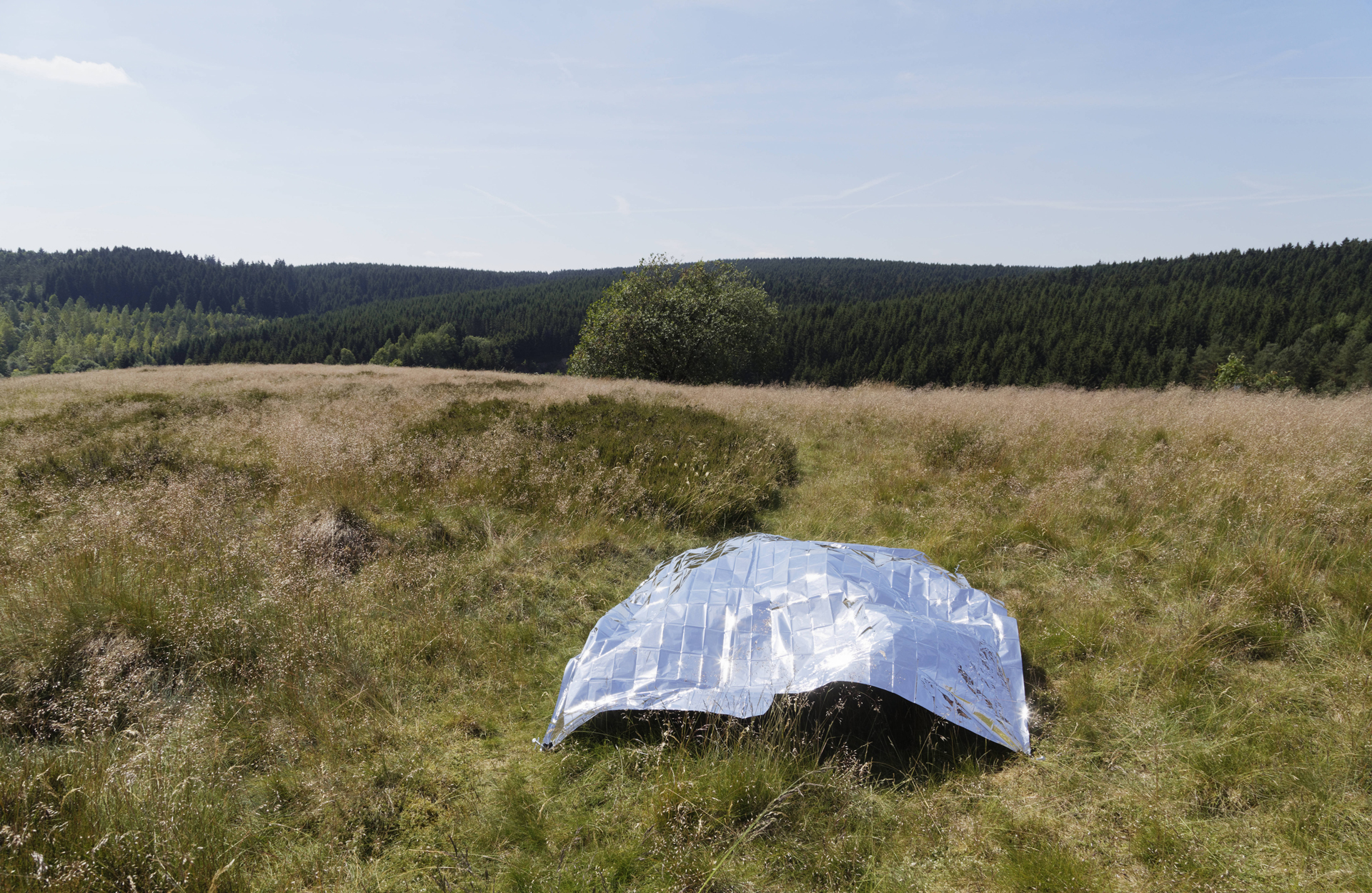
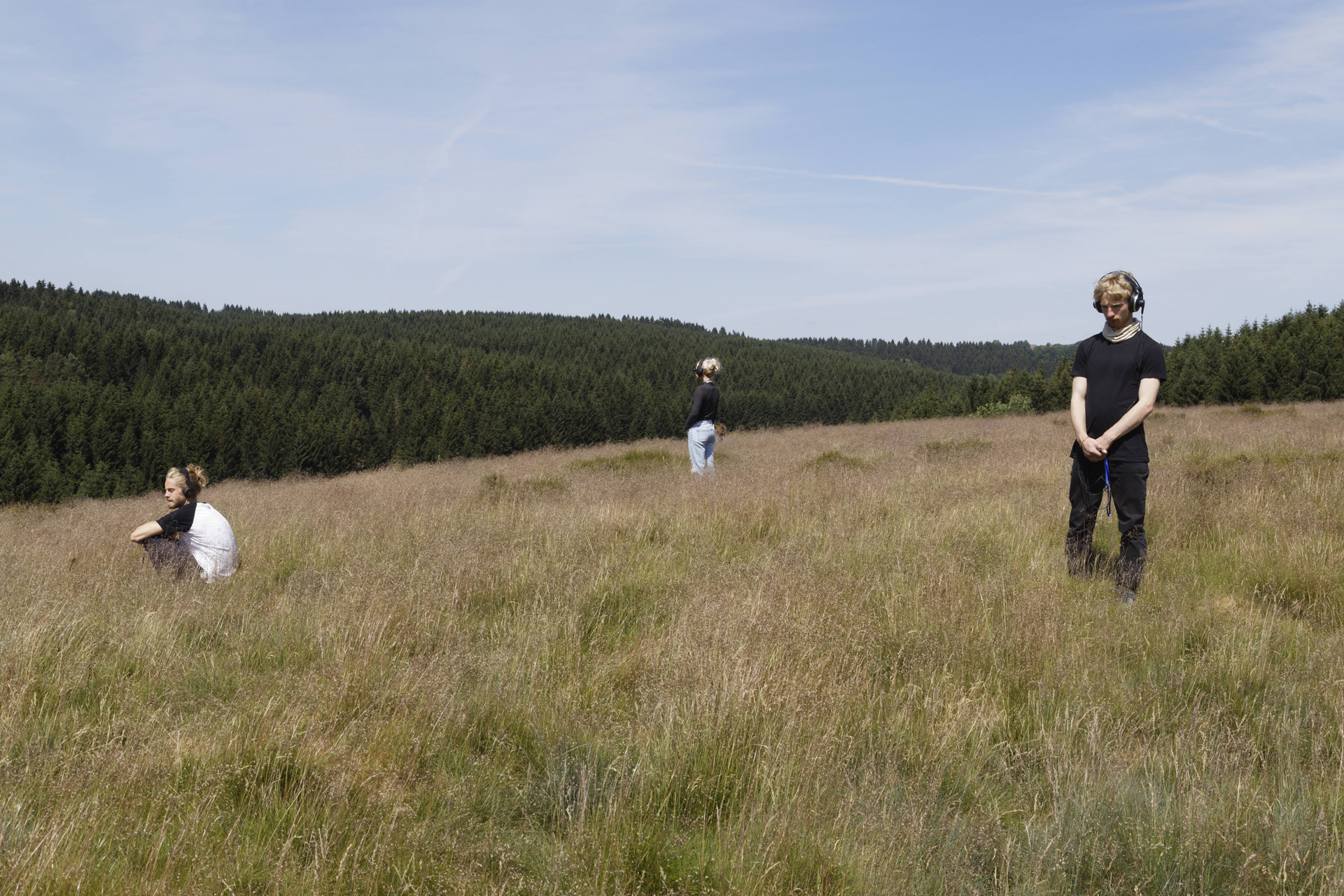





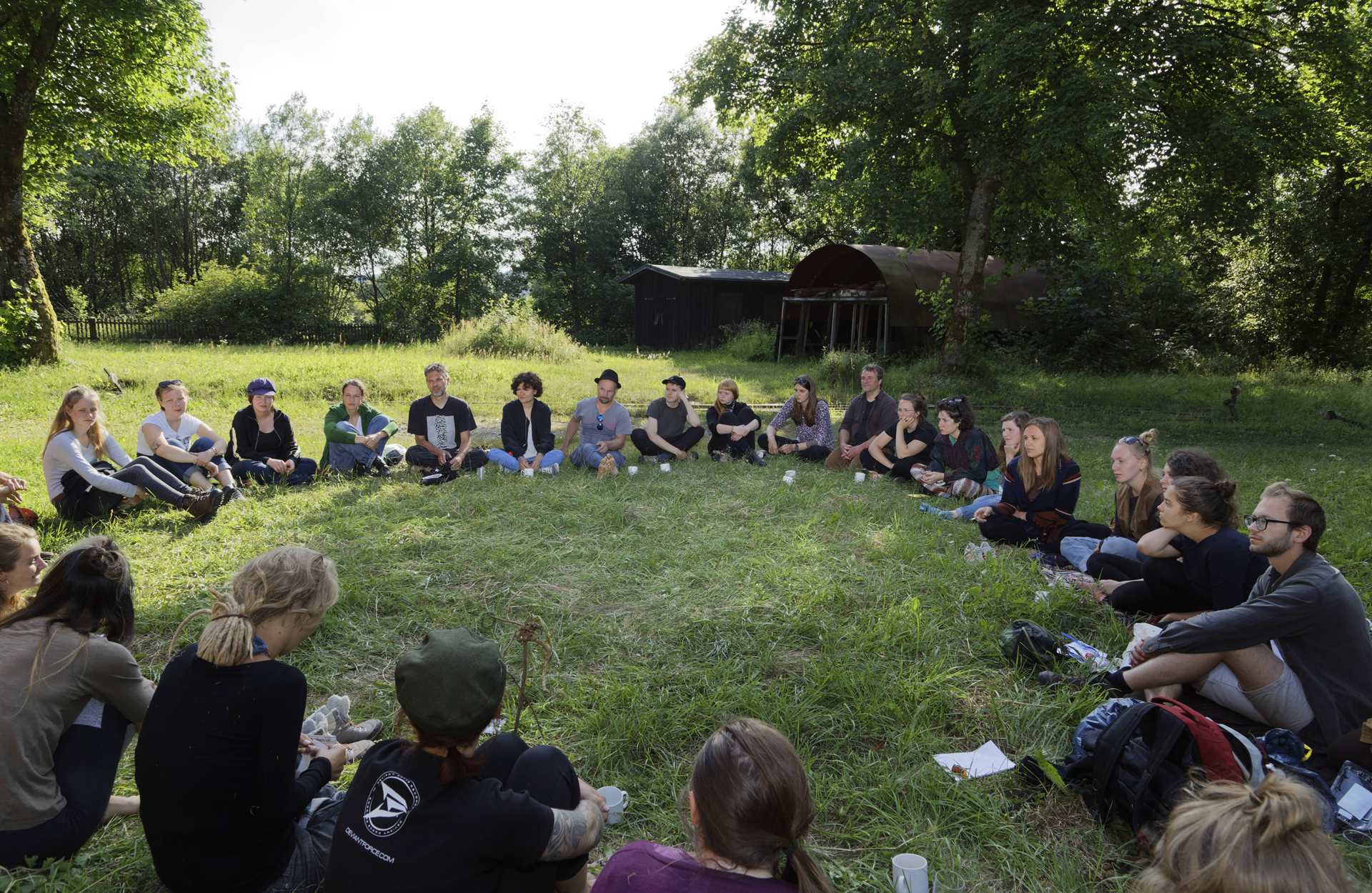

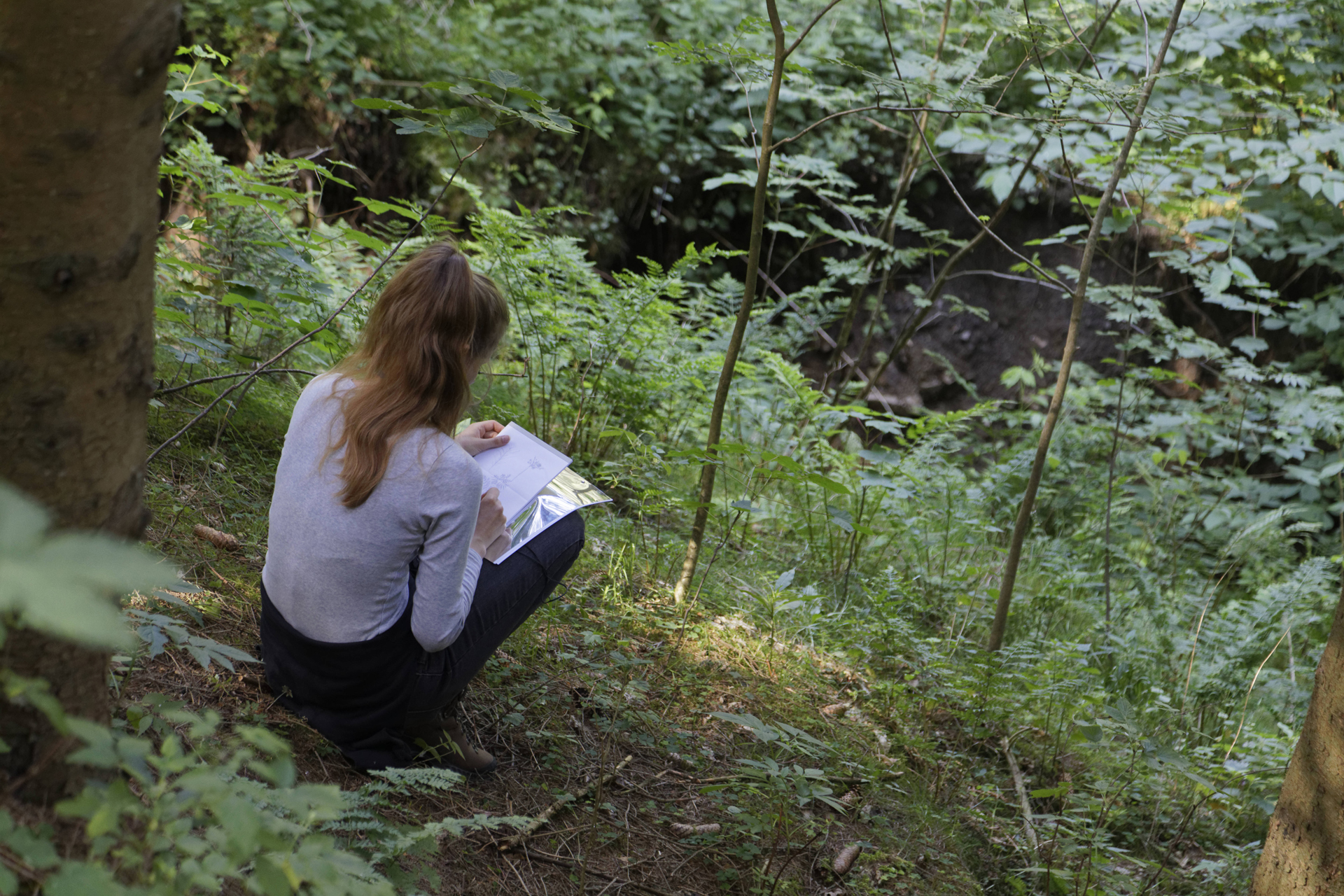


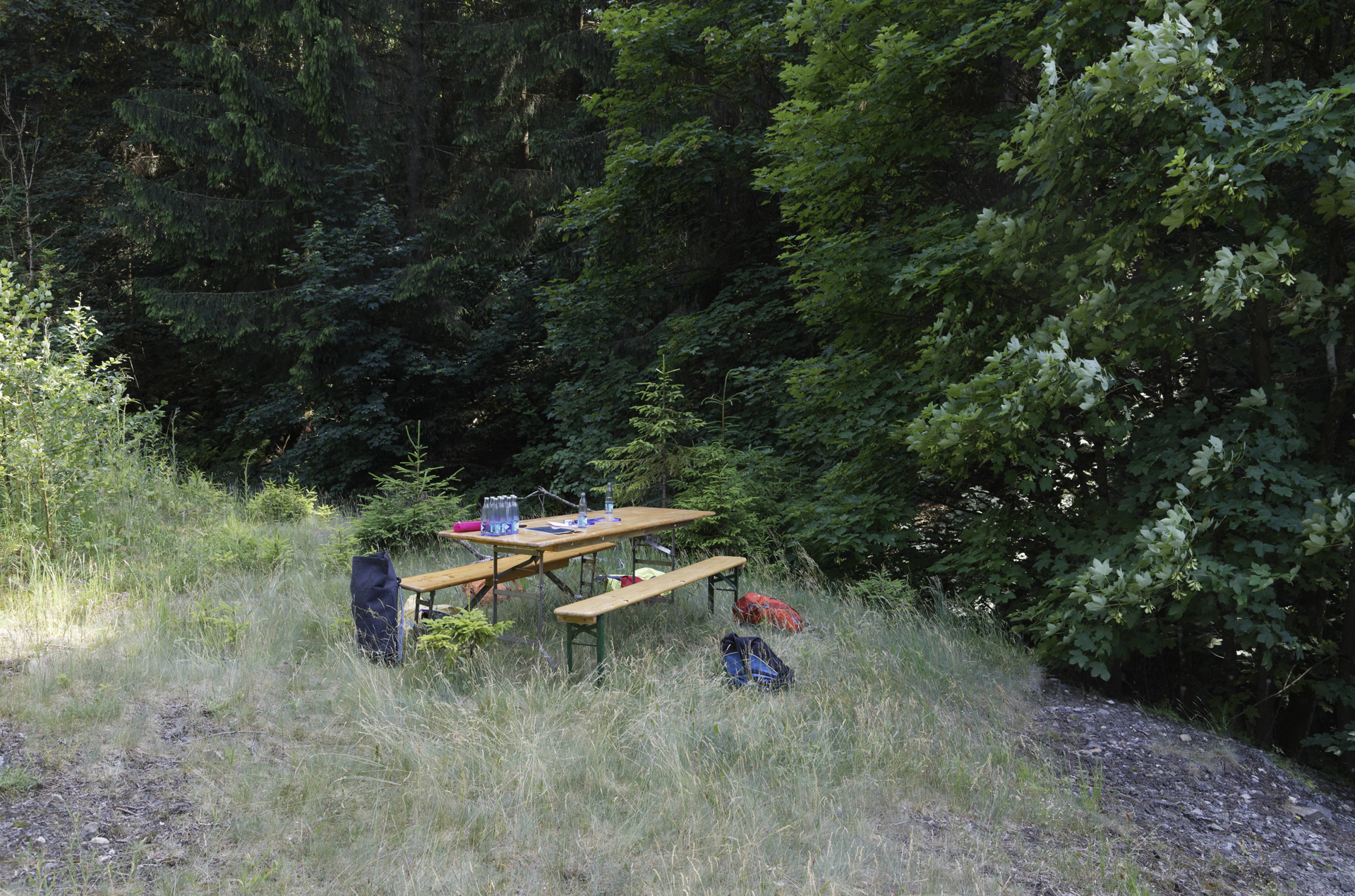
SITUATED KNOWLEDGES, GLOBAL ECOLOGIES
2-4.09.2019 at NGBK and Prinzessinnengarten Berlin.
2-4.09.2019 at NGBK and Prinzessinnengarten Berlin.
Situated knowledge / Global ecologies: a collaborative Walkshop Ramble was a three-day project on social-ecological justice, initiated by artist Barbara Marcel and journalist Camila Nóbrega, which took place between 2 and 4 September in the Prinzessinnengarten space in Berlin. The project brought together scientists and fellow scholars from the Heinrich-Böll Foundation with environmental activists, journalists and artists, for an experimental format of knowledge exchange. The main themes were guided by different understandings of what has been called ecology and the global dynamics of knowledge production and narratives about the territories, seeking decolonial and antipatriarchal views.
As a closing debate in collaboration with the project »Licht Luft Scheiße. Perspektiven auf Ökologie und Moderne«, the dialogue was open to the public, with the participation of the workshop participants, and the presence of the Brazilian urban farmer and researcher Sílvia Baptista, representative leader of the struggle for land rights in Brazil. The debate was mediated by Barbara Marcel and Camila Nóbrega, focusing on the ongoing narratives about social-environmental conflicts in Brazil and the situation of struggle of diverse social movements and forest peoples, not only for the right to land, but for the right to livelihoods, community practices and common imaginaries. From a local-global perspective and reflecting on what was produced throughout the Workshop, the aim was to discuss asymmetries related to land rights and, simultaneously, to the production of discourses. The role of patriarchy and coloniality in organizing bodies and territories were in the core of the discussion.
